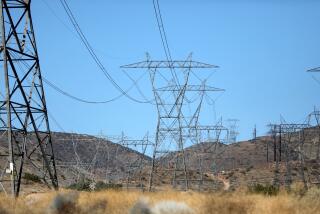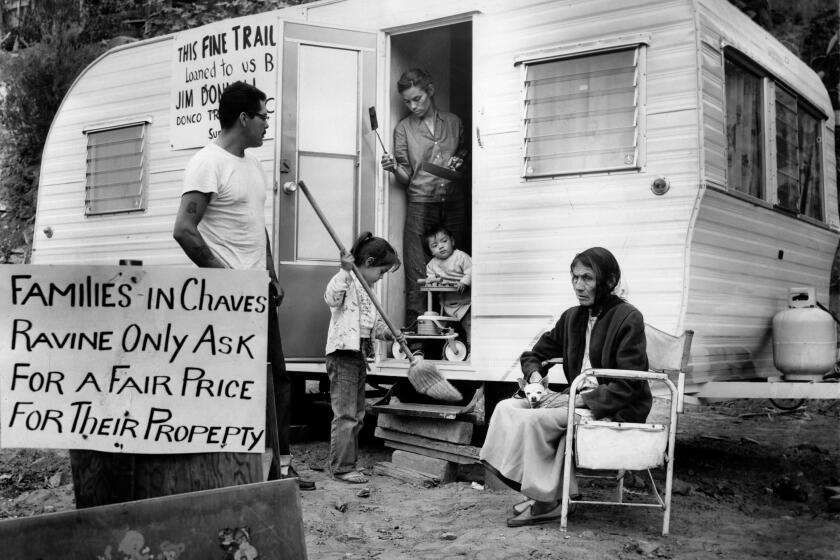Trying to sell a carbon tax in a no-new-taxes world
Congress demonstrated last week that its current polarized membership is probably incapable of agreeing to any kind of tax increase, even as an alternative to much bigger tax increases slated to take effect automatically. Nor do many Republicans seem receptive to President Obama’s argument that tax increases are a necessary part of a multi-year effort to bring down the federal deficit.
So it seems almost risible to argue that Congress should impose a whole new type of tax that would cost U.S. companies tens of billions of dollars, much (if not all) of which would be passed on to their customers. Yet that’s the pitch from environmentalists who want lawmakers to create a tax on carbon to curb the use of fossil fuels and promote clean energy.
The odds are, ahem, long. But with strong, bipartisan interest in overhauling the tax code in 2013, there’s a good chance the idea will at least work its way into the conversation.
In fact, the idea of a carbon tax has already been endorsed by several well-known conservative economists as a potential substitute for other federal levies -- such as the corporate income tax -- that discourage investment and growth. Even Grover Norquist seemed to like that approach, before he didn’t. And liberal economists like it too, albeit as a deficit reducer, not just a substitute for other taxes.
Which brings us to the Coronado, Calif.-based Citizens Climate Lobby, a nonpartisan advocacy group that’s building a grass-roots campaign for a tax on carbon emissions. Executive Director Mark Reynolds argues for a version of the carbon tax that neither reduces the deficit nor replaces other forms of taxation. Instead, Reynolds is pitching a version of the tax that doesn’t send any money at all to federal or state governments. All the money would be paid back to U.S. households.
The point is to raise the cost of fossil fuels enough to make other, cleaner sources of energy competitive. That way the federal government could stop subsidizing all forms of energy and let the market work.
The group, which has 73 chapters in 30 states, is trying to help ordinary citizens apply more pressure on lawmakers to do something dramatic and effective about carbon emissions. From an economist’s point of view, it makes sense to tax behaviors you’re trying to discourage. It’s also a far better approach than using subsidies to help favored industries lower their prices.
The Citizens Climate Lobby proposal would collect taxes on the carbon content of fossil fuel at the point the fuel enters the country -- that is, the mine, the well or the port. The tax would start low -- $15 per ton of potential emissions -- then rise $10 per ton each year for 10 years. The tax would eventually provide a powerful incentive for power companies and other major consumers of fossil fuels to switch to clean energy sources, rather than trying to trade for emission credits or trap their emissions before they enter the atmosphere.
The lobby wants all of the carbon tax revenue returned to consumers as dividends, with everyone receiving the same amount. That would shield them against the effect of higher fuel prices on the cost of just about everything else.
But it’s not a perfect shield, and that’s one of the political problems for the group’s proposal. Some people consume considerably more fossil fuels than others -- for example, those who rack up a lot of miles behind the wheel of a gas-powered car, or those who live in particularly hot or cold regions served by coal-powered plants. As a result, the tax would create winners and losers. By Reynolds’ estimate, two-thirds of U.S. households would collect more in dividends than they paid (indirectly) in carbon taxes, and one-third would collect less.
Many people could conceivably find ways to lower their costs by trimming their consumption of fossil fuels, whether it be by making their homes more energy efficient, switching to a more fuel-efficient car or taking mass transit to work. That’s a good thing. But lower-income Americans may not have the resources or flexibility needed to cut their energy use. They’d also have a harder time managing the higher costs for food and other products that rely to some degree on fossil fuels for their production and delivery.
On top of that, there’s the sticker-shock factor. According to one estimate, a $20 carbon tax would drive up the price of gasoline by 20 cents per gallon. The Citizens Climate Lobby’s proposal calls for a tax that’s almost six times as large by the time it’s fully phased in.
These are the sorts of political hurdles that make the carbon tax such a tough sell, no matter how the revenue is used. Environmentalists respond that the cost in the short term pales in comparison to the cost of climate change in the not-too-distant future if we don’t cut our carbon emissions dramatically. So far, however, that’s not been a persuasive argument in Washington.
ALSO:
2012 endings: What we’ll miss most
This New Year’s, no punishing resolutions
Chuck Hagel’s mea culpa to the LGBT community
Follow Jon Healey on Twitter @jcahealey
More to Read
A cure for the common opinion
Get thought-provoking perspectives with our weekly newsletter.
You may occasionally receive promotional content from the Los Angeles Times.







